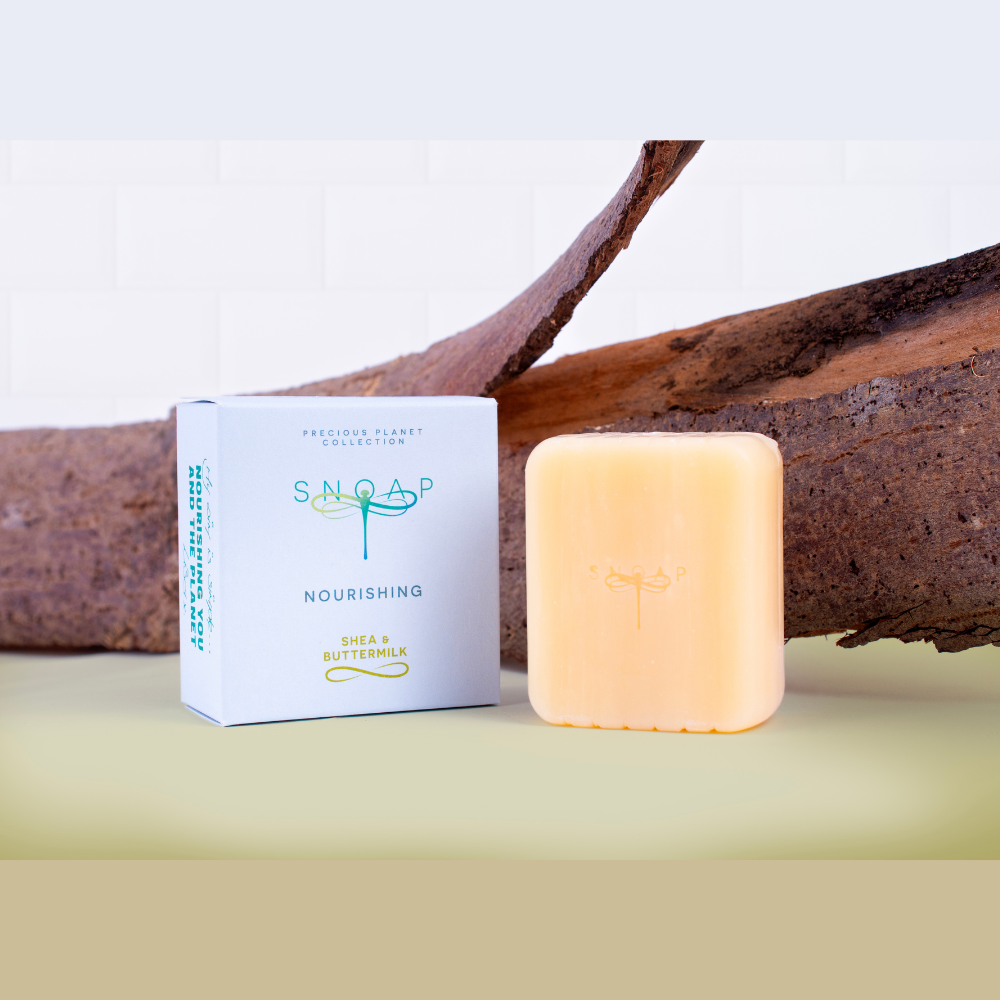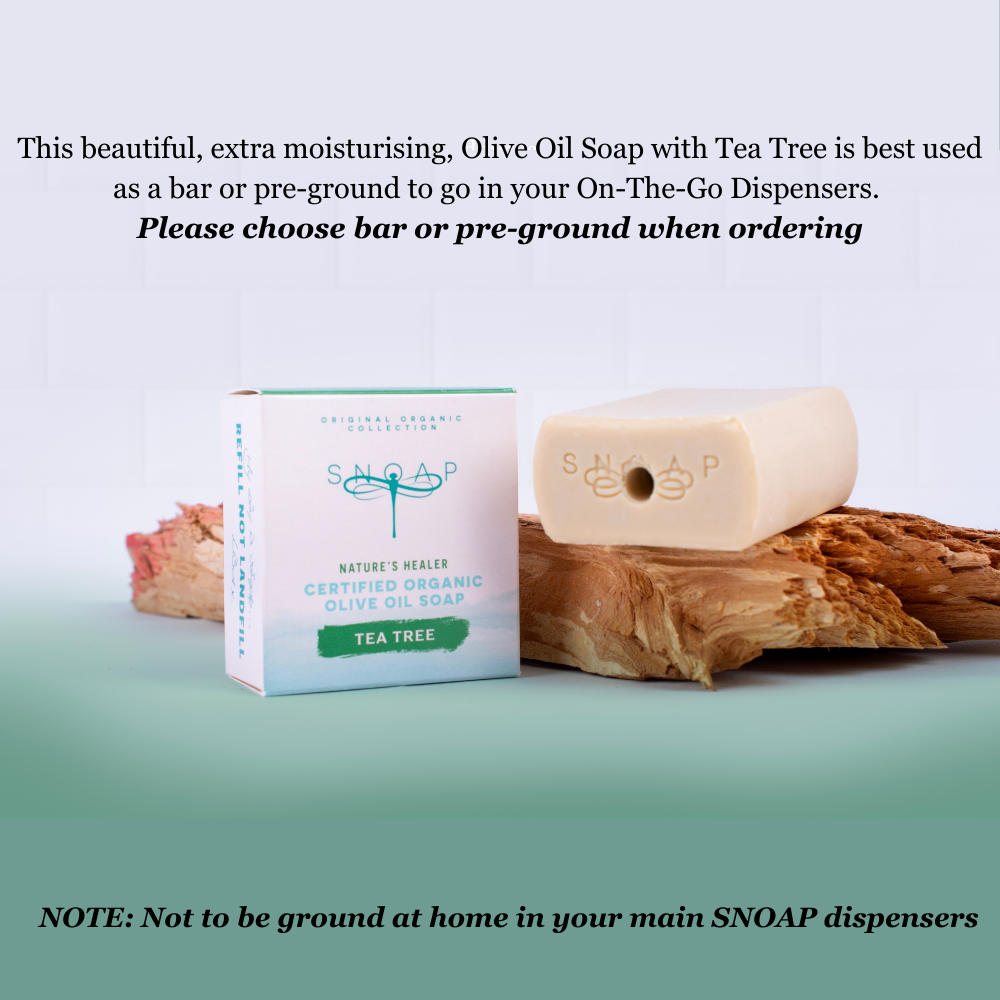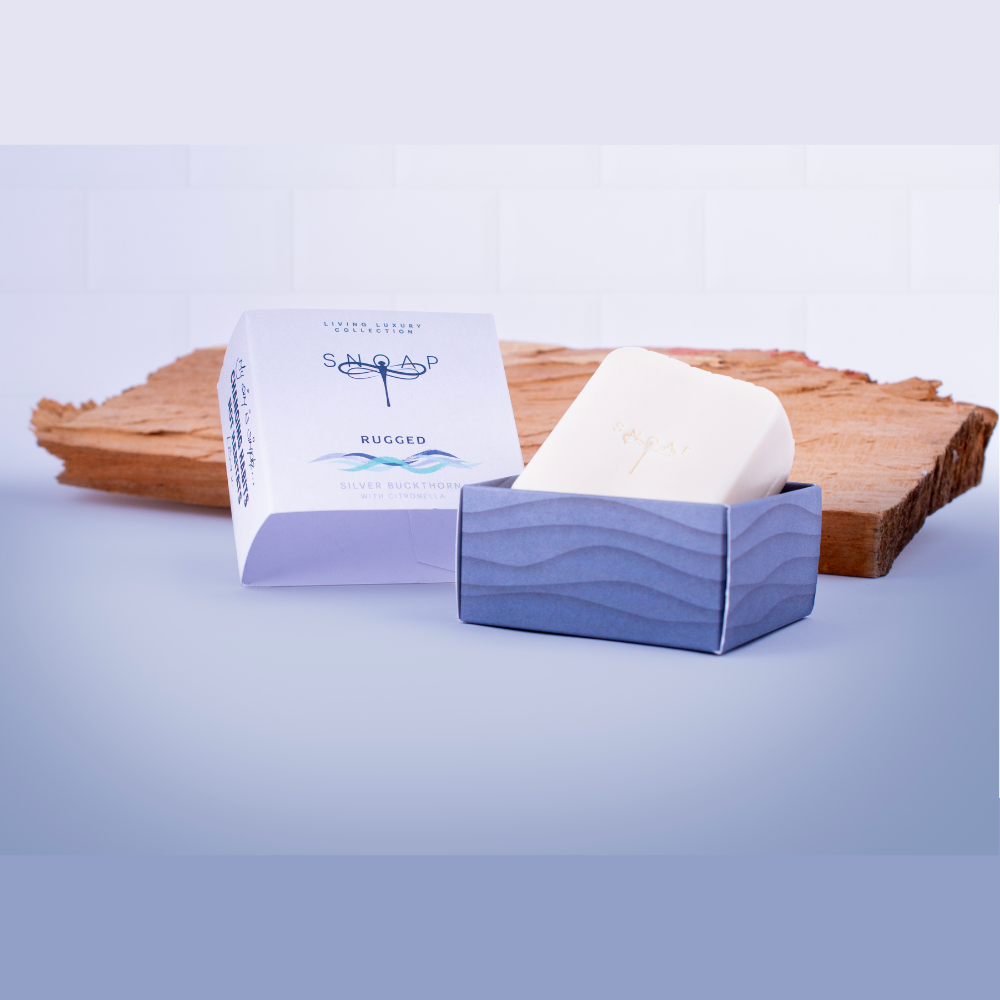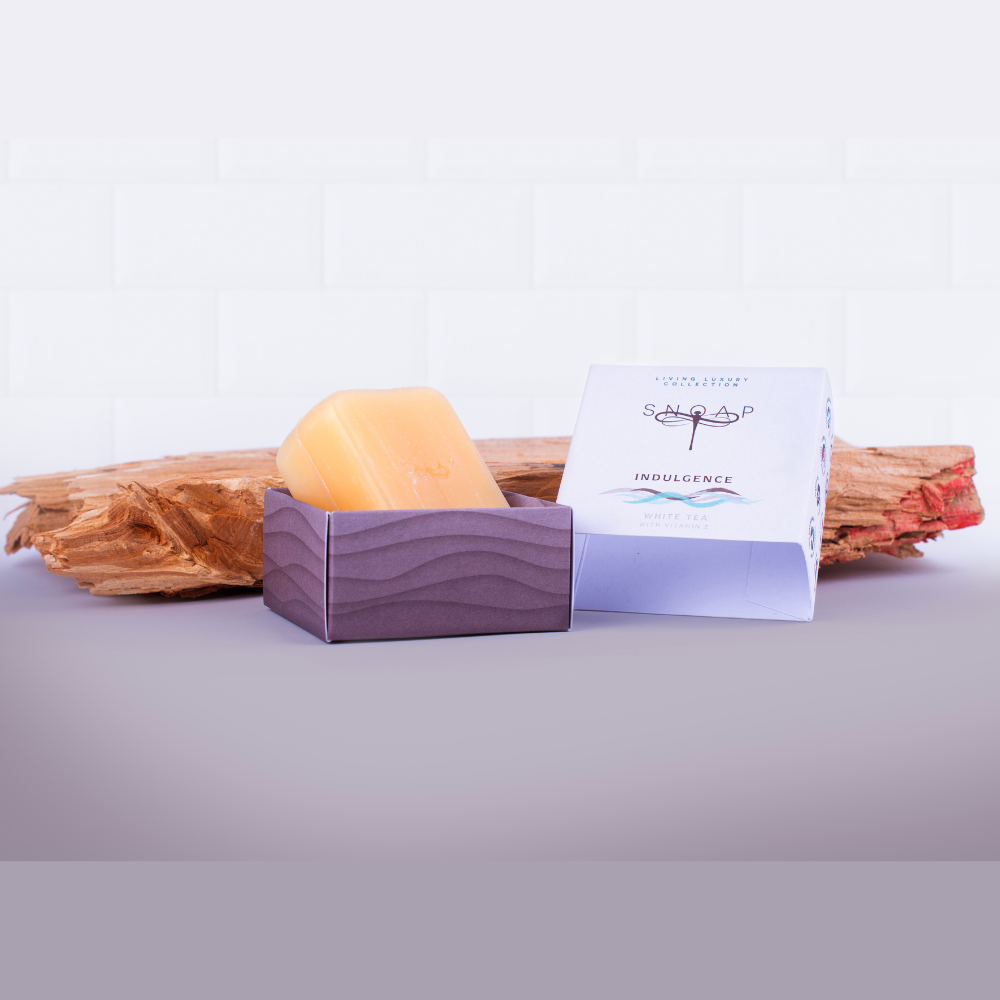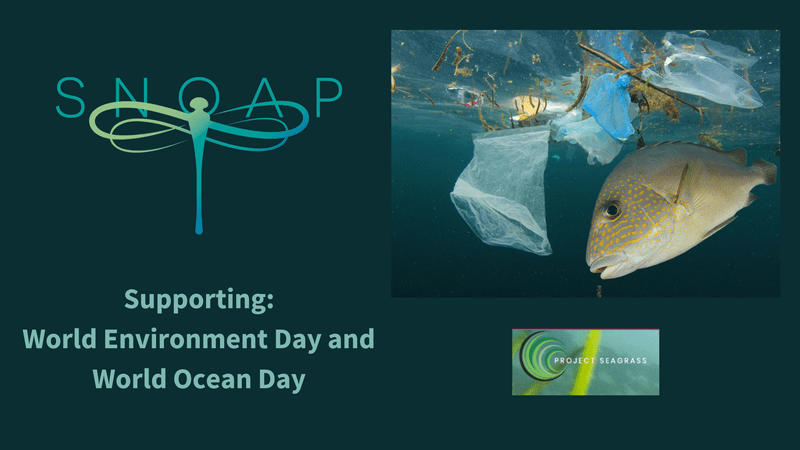Caring for our environment and our oceans
As you may know, here at SNOAP HQ we are beyond passionate about keeping our oceans, waterways and rivers clean and free of plastic and other pollution. June played host to lots of important ‘awareness days’, but we would like to focus on two that are particularly important to us: World Environment Day and World Ocean Day. Given that SNOAP is on a mission to reduce single-use plastic and foam pollution, we wanted to talk about this in more detail.
Why do we need special days to highlight these problems?
At SNOAP, we believe that every day is an opportunity to turn the tide on plastic pollution. However, these awareness days really do help to raise the profile of the important global work to reduce the effects of climate change and man-made pollution. This year, World Environment Day also focused on plastic pollution, using the hashtag #BeatPlasticPollution.
Did you know that over 70% of our planet is made up of ocean? Or that the ocean produces 50% of the planet’s oxygen? It’s fair to say that the ocean really is the life force that sustains every single organism that inhabits the Earth.
The problem with plastic is that it doesn’t ever really break down and unfortunately, 90% of it is made from fossil fuels. More alarmingly, microplastics are swallowed by marine life, including fish. Not only does this pose a threat to their lives, but 1 in 3 fish caught for human consumption actually contains plastic. That means that when we enjoy eating that cheeky fish supper, we are eating discarded plastic. That’s a pretty yucky thought, right?
Something that many people also haven’t considered is the effect of liquid hand or body wash (or shampoo) on the runoff into our drains. Studies have shown that six times more liquid handwash is used each time we wash our hands (vs. solids) and we use around 30% more water, too. This is because the product is dispensed via a pump which is designed to give you a more than generous helping. That product ends up in the sewer system, where it foams; this can create what is known as a ‘bubble blanket’. You may have seen this sometimes in rivers or near sewage outfall pipes and the runoff is harmful to many types of wildlife, flora and fauna.
What can you do?
Well, we aren’t in the business of shaming anyone into buying our products and usually, we like to keep things light in our blogs! The statistics on plastic pollution are truly shocking, there’s no getting around that, but we can make better choices, both for ourselves AND for our planet, especially our oceans. The first step to taking action is to make a conscious effort to purchase products that are a) effective, and b) not harmful to the environment in the ways that these traditional, mass-produced products are.
The single, most important thing you can do right now is to try and cut down on the amount of single-use plastics you’re using. Just two bars of our solid SNOAP will give you 2,000 handwashes … that’s the equivalent of TWENTY bottles of liquid hand or body wash! That’s twenty fewer bottles landing up in landfill or in the ocean (it’s also good for your wallet - if you add up the cost of all of that handwash, two bars of SNOAP are a fraction of the price. Who doesn’t love a good value product?).
Our SNOAP dispensers are built to last many years, rather than weeks and the clever design also means that there is no soap waste left around the dispenser area. Much better than having those rings of blue or green slime around the bottom of plastic handwash bottles!
A charity that we endorse and support is Project Seagrass; you may have seen our previous blog about it (you can find it here). Seagrass is terribly important to our oceans as it captures carbon up to 35 times faster than tropical rainforests, but unfortunately, it is disappearing at a rate of knots. We are proud to say that Project Seagrass also use our dispensers and SNOAPS.

We’ve also included a link to the #BeatPlasticPollution Practical Guide so that you can read for yourself about the scale of the global problem, along with some practical solutions about what you can do to help. Why not get involved and use the hashtag on social media - get the conversation going and get your friends and family involved!
If you’ve got the bottle to change your choices and turn the tide on plastic pollution, sign up for our newsletter; as a SNOAPY, you will receive 10% off all of our products, for as long as you’re subscribed.
Until the next time,

Sources:
Your Aquarium: https://youraquarium.co.uk/aquarium-blog/world-oceans-day-2023-tides-are-changing
Surfers Against Sewage: https://www.sas.org.uk/plastic-pollution/plastic-pollution-facts-figures/
